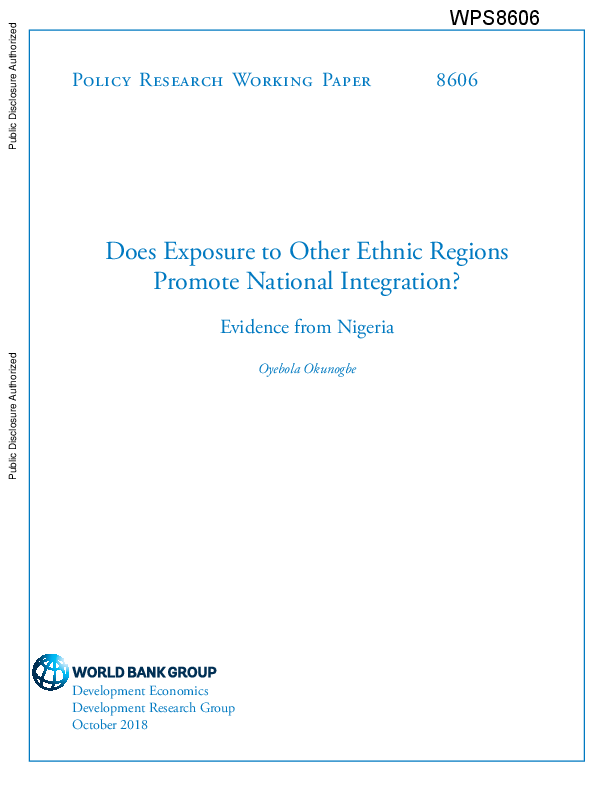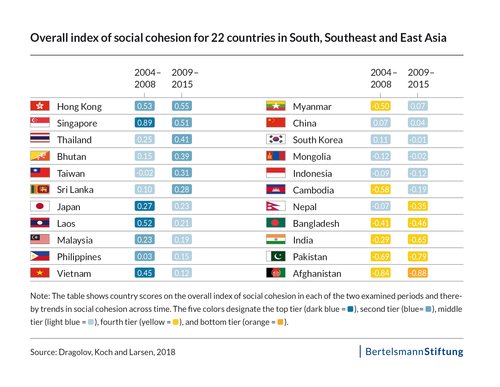Does exposure to other ethnic regions promote national integration? Evidence from Nigeria
Key facts
Identity/feeling of belonging
Connectedness
Youth
Culture and recreation
Summary
This paper examines how temporary migration to a different ethnic region affects national integration. It uses original survey data from individuals who were randomly exposed to different ethnic regions of Nigeria during their mandatory national service, the largest program of its kind in Africa. Comparing participants who served in a state where they are the ethnic majority to those who served in a state where they are not indicates two concurrent effects. First, interethnic exposure creates a stronger connection to the country as a whole: exposed participants have greater national pride and more positive attitudes about Nigeria, they are more knowledgeable about other parts of the country, and they are four times as likely to be living outside their ethnic region seven years later. Second, consistent with social identity theory, immersion in a different ethnic region highlights distinctions between groups and reinforces participants’ connection to their ethnic group: exposed participants have more positive attitudes toward their own ethnic group, but not others, and are more likely to have all their closest friends from their ethnic group.

Explore the hub further



